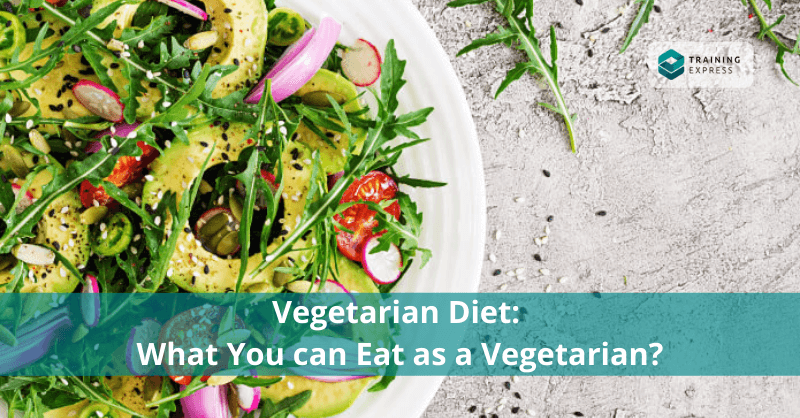
In recent years, vegetarian diets have become increasingly popular. Studies have found plenty of health benefits that are directly linked with vegetarianism. However, you have to know which food to pick to get your daily required nutrients. A high proportion of your diet should include fresh fruits and vegetables.
Eating a vegetarian diet is a healthier lifestyle choice. While you are following a non-meat diet, you have to be very careful of your nutrition intake. You don’t have to worry because we are here to tell you everything you need to know about the vegetarian diet. And what you can eat as a vegetarian. So, let’s jump right in!
Table of Contents
Different Types of Vegetarian Diet
Most of us typically think a vegetarian diet doesn’t include meat, poultry, or fish. But it is exactly the opposite! A vegetarian diet can actually vary based on the different categories of food you include or exclude.
Lacto Vegetarian
A Lacto vegetarian diet includes dairy products such as dairy, cheese, butter, yoghurt, etc. However, the diet excludes food containing meat, fish, egg, and poultry.
Ovo Vegetarian
The ovo vegetarian diet includes eggs and plant food. However, it excludes meat, poultry, seafood, and dairy products.
Lacto Ovo Vegetarian
Lacto ovo vegetarian diet includes dairy products, plant foods, and eggs. However, a lacto ovo vegetarian diet abstains from meat, fish, and poultry.
Pescatarian
On a pescatarian diet, you can’t eat meat or poultry. However, the occasional inclusion of fish, eggs and dairy along with plant products is what this diet is about.
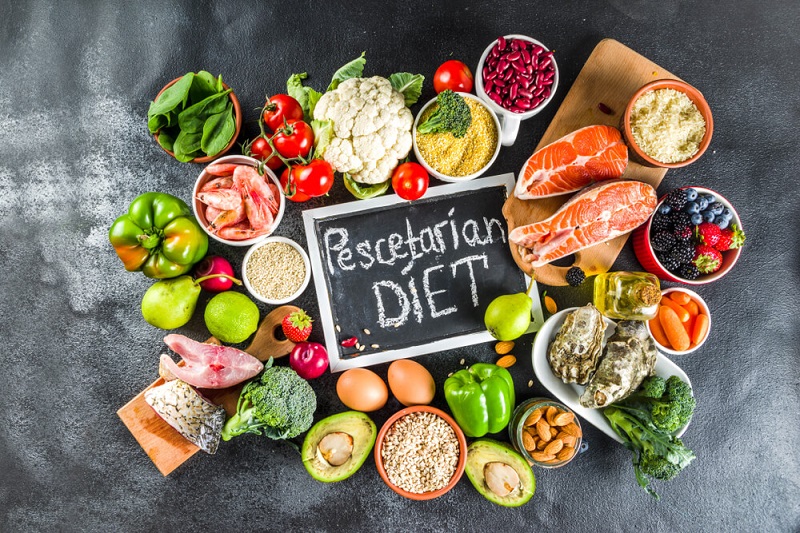
Vegan
Vegans don’t get to eat meat, fish or poultry. On top of that, vegans choose to not consume dairy products, eggs, or any other animal products for that matter.
Flexitarian
A Flexitarian diet is also called a semi-vegetarian diet. A Flexitarian diet is primarily a plant-based diet with the occasional inclusion of meat, dairy, egg, and seafood in small amounts. A Flexitarian diet lets you get the health benefits of eating mostly a plant-based diet while not having to quit meat entirely.
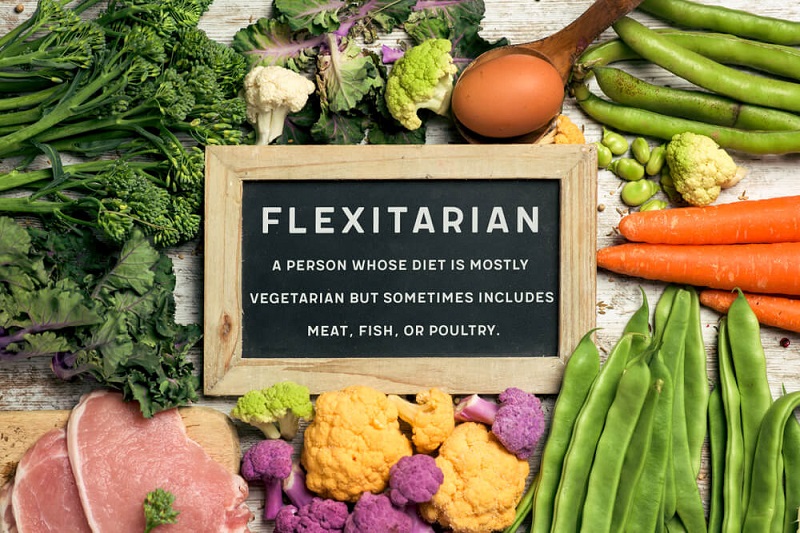
Additionally, it helps cut down your consumption of animal products and reduce your carbon footprint. However, this diet is more common for people who only have health-related concerns.
You can reduce the amount of saturated fat and cholesterol you eat with a flexitarian diet. Because it helps you increase the number of vegetables, fruits, and grains in your diet.
Meal Plans for Vegetarian Diet
Experts suggest having at least five portions of fruits and vegetables daily if you are on a vegetarian diet. Here’s a list that you can use to chart your daily meal plans.
Breakfast
Choose a protein-based breakfast to start your day in a filling and sustaining way. For example, have toasted bread with scrambled eggs for a quick morning breakfast. Eggs are a great source of protein, fat, and vitamin D. And protein helps to keep you feeling fuller for a longer time of the day. You can even have porridge or cereal with a selection of nuts and fruits. In addition, choose fortified breakfast cereals to avoid the risk of iron deficiency.
To optimise your iron intake, mix sunflower seeds or pumpkin seeds with your fruit juice every day. Don’t ever skip breakfast, as it will set off your blood sugar level. Also, breakfast plays a crucial role in maintaining weight.
Lunch
Combine starchy carbs with a mix of proteins at lunch. Carb-rich food will help you from that mid-afternoon slump. Go for high fibre whole grains instead of sugary white food, as it will help you manage those afternoon munchies.
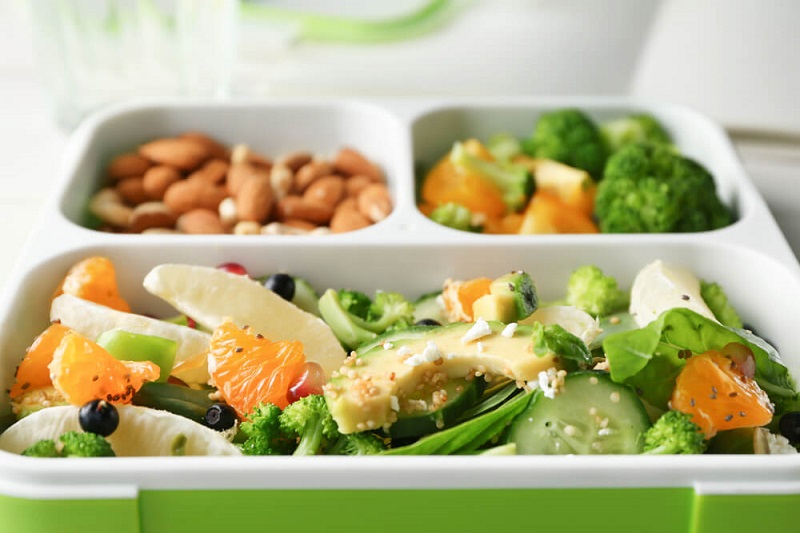
Make sure to include some heart-friendly mono unsaturated fats in your lunch. You can find it in plant-based foods such as avocado, olive, and cold processed rapeseed oils. You can also find unsaturated fats in flaxseeds and unsalted nuts.
Dinner
Have carbs that are low in fat and fibre rich. Because carbs are filling and will get you through the entire evening. Also, combine the carbs with some healthy essential fats Nuts, seeds, tofu, eggs, and dairy products are good sources of essential fats. At night, your body uses these proteins and healthy acts for regeneration and repair.

Benefits of a Vegetarian Diet
When it comes to vegetarian diets, plenty of health benefits can be named. However, you must follow the diet correctly in order for you to reap the benefits. For instance, avoiding meat to only end up eating processed bread, pasta, and excess sugar will only make your health worse. Benefits of a correct vegetarian diet include,
Keeps Your Heart Healthy
Vegetarians are less prone to heart disease or are hospitalised because of it. For heart-protective benefits of a vegetarian diet, you can choose these foods
- Legumes
- Nuts
- High fibre whole grains
- Low glycaemic food
- Vegetable and fruits
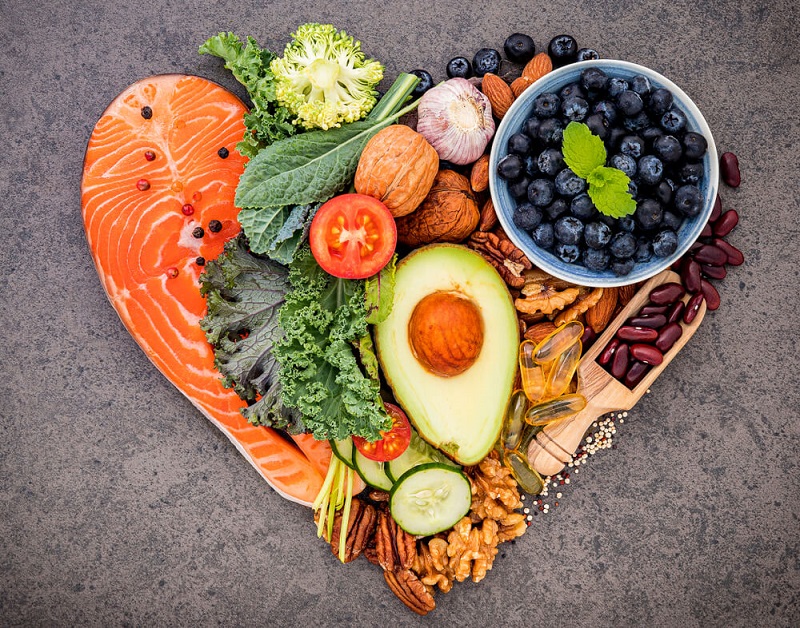
You have to choose food that will keep your blood sugar level stable. And for that, you have to consume soluble fibres. Additionally, it will reduce your cholesterol level and risk of heart disease.
Reduces Risk of Cancer
A vegetarian diet gives you an edge in lowering your risk of having cancer. In low-risk populations, vegetarian diets can significantly lower the risk of cancer. A vegan diet can give you the most protection against female-specific cancers. On top of that, a vegan diet is the most effective way to combat any type of cancer that is out there.
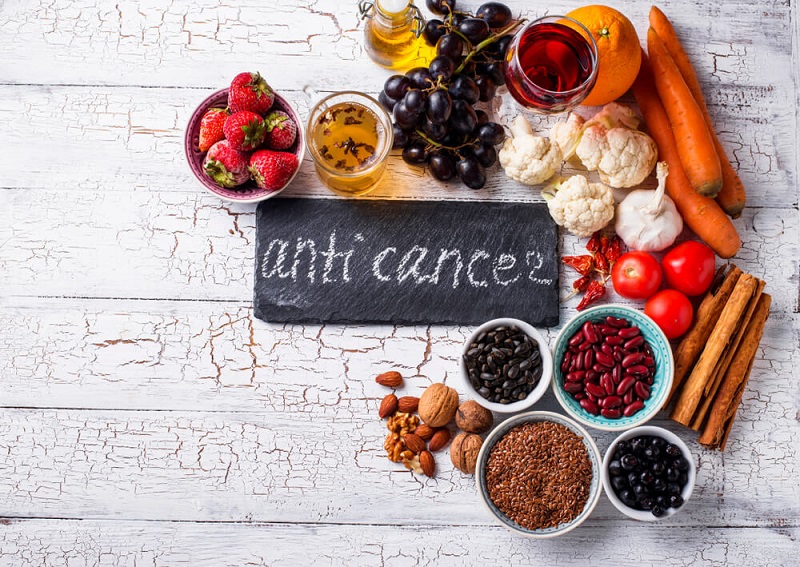
A diet full of fresh fruits and vegetables is the key to decreasing the risk for cancer in general. To keep your gastrointestinal tract healthy and disease-free, opts for a lacto ovo vegetarian diet. So, having a plant-based diet with the necessary fruits and vegetable intake can be beneficial for a vegetarian.
Prevents Type 2 Diabetes & Lowers Blood Pressure
A healthy vegetarian diet can help prevent and treat complications associated with type 2 diabetes. You have to include low glycaemic food such as whole grain and legumes in your diet. It helps keep your blood pressure level steady. Vegetarians have a lower risk of developing type 2 diabetes than non-vegetarians.
Consequently, research has found that vegetarians who don’t eat meat have a low risk of blood pressure. It is because plant food tends to be lower in sodium, fat and cholesterol. Thus, it can have a positive effect on your blood pressure. Also, potassium helps to reduce blood pressure. And it is widely available if you are following a vegetarian diet.
Decreases Asthma & Promotes Bone Density
A Swedish study has shown that a vegetarian diet can soothe down the symptoms of asthma. It is because certain animal products can induce an allergic or inflammation response. Thus, removing animal products from your diet can reduce the symptoms of asthma.
Additionally, the rate of osteoporosis is lower in countries where people mostly prefer to eat a vegetarian diet. Animal products can sometimes force calcium out of your body. As a result, it creates a loss in bone density and increases the risk of osteoporosis. In another study, evidence showed only an 18% loss of bone density for a group of 80-year-olds. And they were on a lacto ovo vegetarian diet for the past 20 years. In contrast, meat-eating groups of people or omnivores had 35% less bone density at the same age.
Vegetables such as Broccoli, Bok choy, Chinese cabbage and kale can provide you with a good amount of calcium. Consequently, fruits and vegetables contain potassium and magnesium, which helps reduce blood acidity. As a result, urinary excretion of calcium is reduced.
How Can You Make Vegetarian Diet Work?
To get on a vegetarian diet, you don’t have to quit cold turkey! Start by preparing a couple of meat-free dishes each week. And gradually keep on including more plant-based food into your diet. For instance, use tofu in stir-fried rice instead of chicken. Another great substitution can be veggie burgers instead of beef burgers.
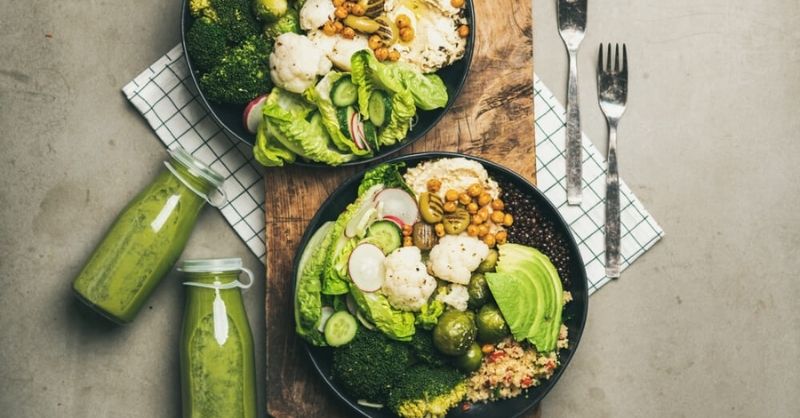
In addition, you can amp up your exercise routine and eat fewer calories if your aim is weight loss. Here are a few tips to help you make the transition to a vegetarian diet,
Eat Your Meals Without the Meat
Ramp up the number of meatless meals you already enjoy every week. Do you like spaghetti with tomato sauce and vegetable stir-fry? If yes, try having it twice a week or as many times as you like. Make sure to include greens in your daily meals.
Also, try experimenting with your favourite dishes and leave out the meat ingredients to see if you like them. For example, you can make chilli without ground beef and add an extra amount of beans to it.
Plan Ahead & Be Aware
Take up meal planning for the diet you are planning to start. Make a grocery list before heading to the market so that you are not tempted to do vengeance shopping.
Also, make yourself knowledgeable on all the ways to get protein on a vegetarian diet. And make sure you have them available. Pumpkin seeds, roasted chickpeas and nuts are extremely healthy and protein loaded snacks.
Remember, being a vegetarian is your journey, and you should design it in a way that is best for your body and lifestyle. Make sure the changes happen gradually. Because making too many changes at once increases your chance of quitting altogether.
5 Healthy Vegetarian Snacks for You to Munch on
For a healthy vegetarian diet, selecting nutritious snacks throughout the day is key. Do not ever grab the processed snack food items as they provide very little nutrition. Finding a healthy snack option for vegetarians is not challenging. So, let’s look at 5 healthy vegetarian snacks you can have during snack time.
1. Boiled Eggs
Boiled eggs are a wholesome vegetarian-friendly snack to keep you feeling full in between meals. Eggs are nutritious and a great source of protein. On top of that, it is high in selenium, vitamin A and Vitamin B.
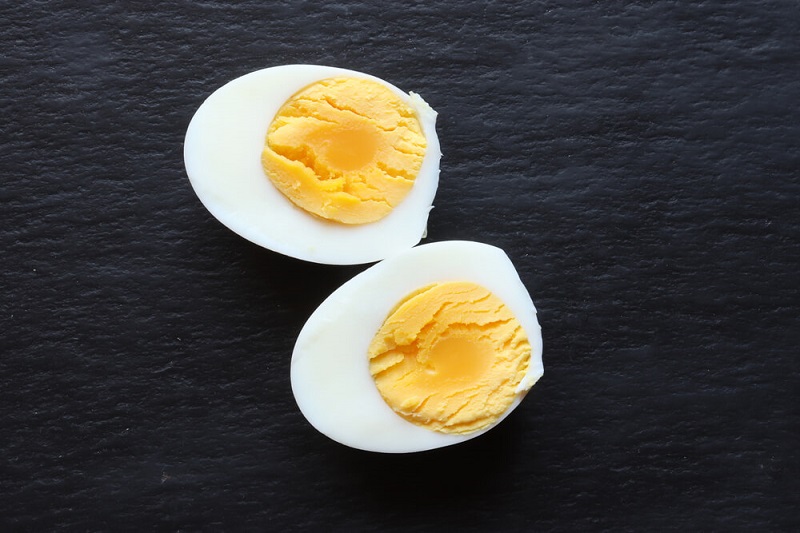
In addition, many studies have shown that eating eggs decreases hunger and aids in weight loss. It also increases blood levels of good cholesterol (HDL) and antioxidants.
2. Roasted Edamame
Sometimes, soybeans are harvested before they are fully ripe. These are what we know as edamame. You can boil, roast or steam edamame and create a tasty, nutritious, go on snacking. You can get 8 grams of fibre and 18 grams of plant-based protein from 1 cup serving of cooked edamame. In addition, it contains a good amount of iron, magnesium and vitamin C.
You can purchase edamame in convenient and ready to eat packages. Edamame is highly versatile, so you can even roast some at 200 degrees C for 30 – 40 minutes. And top that up with some Parmesan, garlic, or paprika powder, and the savoury snack is ready for you to enjoy.
3. Green Smoothies
You can fit a few extra servings of greens into your vegetarian diet by drinking some green smoothies. It is a quick and convenient way to ramp up your intake of vitamins, minerals, fibres, and antioxidants. Usually, you can make green smoothies with leafy greens like kale or spinach.
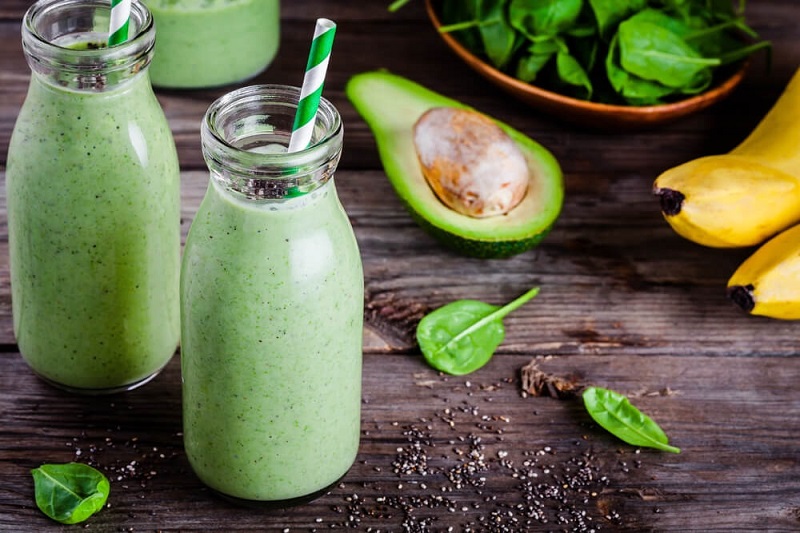
However, you can add other fruits, veggies and ingredients as well. For instance, you can try mixing carrots, beets, celery, berries, and bananas together. Sprinkle some chia seeds or flax seeds for an extra punch of protein.
Also, try mixing in some vegetarian protein powders. It helps keep you feeling full for a much longer time and supports muscle growth. Whey, pea protein powder, hemp protein powder also help in controlling your blood sugar level.
4. Fruit Yoghurt
Yoghurt is an excellent snack option if you are on a vegetarian diet. It is a rich source of protein, calcium, Vitamin B12 and potassium. In the same way, combining your favourite fruits into the yoghurt can bump up your intake of fibre, and vitamin C. Fruits such as berries, bananas, grapes, and apples contain antioxidant minerals.
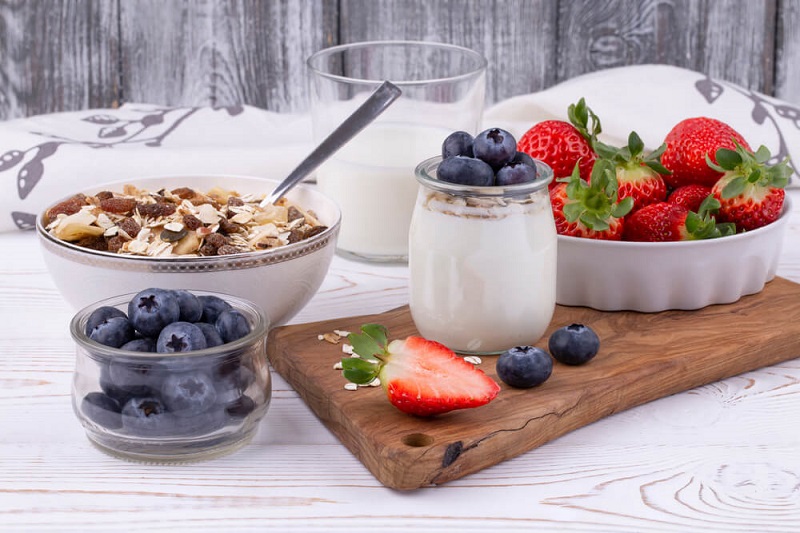
Not to mention, you can minimize your intake of added sugar by opting for unsweetened varieties of yoghurt. Of course, you can drizzle a little bit of honey or maple syrup to enhance the flavour later on.
5. Fruits & Nut Butters
Want an easy, filling, and quick plant-based snack that you can always enjoy anywhere you go? Then try pairing your favourite fruit with nut butter of your choice. As we have already discussed, fruits are loaded with antioxidants and are high in fibre.
And it helps keep you feeling full in between meals. Moreover, nut butters provide a hearty dose of satisfying proteins and healthy fats. You can choose any nut butter of your likings such as almond butter, peanut, or cashew butter.
What You Should NOT DO to Lose Weight on a Vegetarian Diet
Vegetarians tend to have a lower body mass index than their meat-eating counterparts. When you eat lots of fruits, veggies and whole grains, you feel fuller on much fewer calories than required. Thus, you are bound to shed some pounds with healthy eating and some physical activity. However, several factors might prevent you from losing weight despite being on a vegetarian diet.
Eating Large Portions but Insufficient Protein
You gain weight when you eat more calories than your body actually needs. You might be serving yourself larger portions of nutritious food on a vegetarian diet. However, if you skimp on your protein intake, you might be eating more to feel full. As a result, it might hamper your weight loss journey.
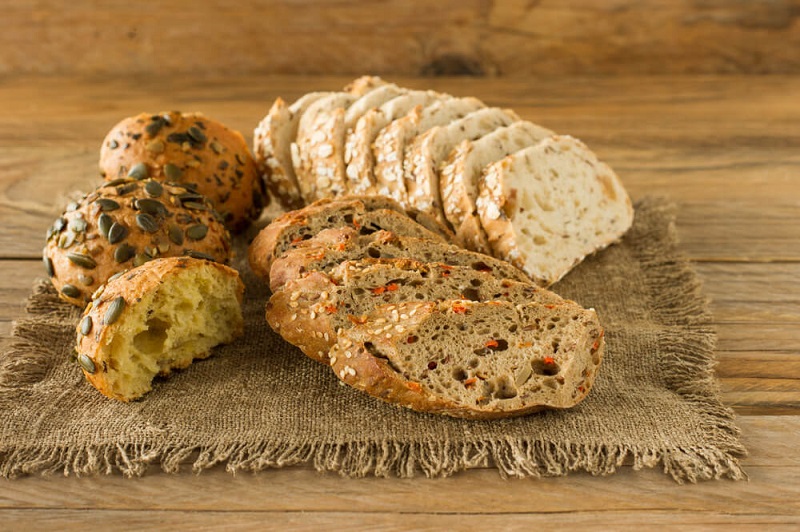
Protein helps decrease the level of ghrelin. And ghrelin is a hormone that regulates hunger. As a matter of fact, protein can lower your overall calorie intake and boost weight loss. However, your protein needs can be easily met on a vegetarian diet with careful planning.
Eating Large Portions of Refined Carbs
You can easily overeat high refined carbs such as bread or pizza on a vegetarian diet. That is because a wide variety of options are available for refined carbs. On top of that, most restaurants only offer refined carbs dishes for their vegetarian menu selections. Refined carbs fail to curb down hunger as much as whole grains and complex carbs do. Moreover, it lacks fibre, so it loads you down with excess calories.
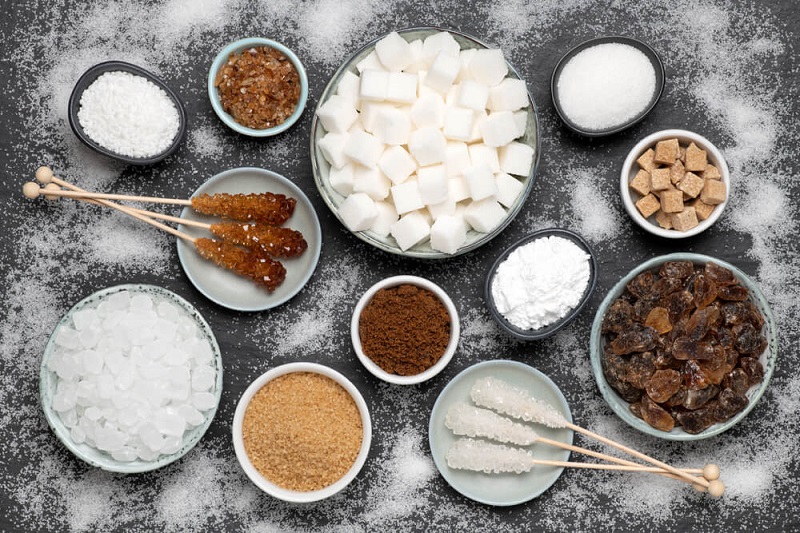
On top of that, research suggests that refined carbs can trigger the release of extra insulins. And it contributes to your weight gain. A study conducted among 500,000 adults found the association between higher insulin levels and carb intake. It also increases the body mass index of individuals.
Overdoing Highly Processed Vegetarian Food
If your vegetarian diet relies too much on processed foods, then you will have a hard time losing weight. Some vegetarian products also contain unnecessary additives and other harmful ingredients. For instance, veggie burgers, vegan cheese, packaged meat substitutes etc.
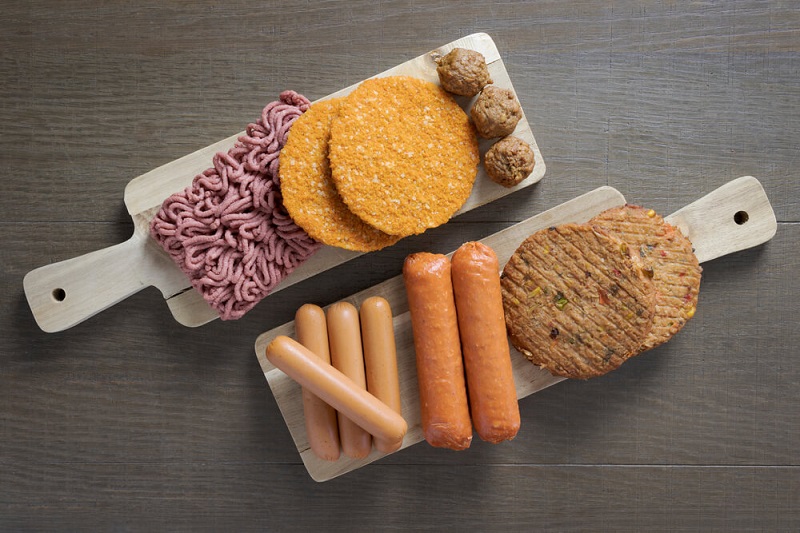
Often, these processed foods are packed with sodium, chemical preservatives, calories and added sugar. As such, when you consume these in excess you start gaining weight instead of losing them. In fact, ultra-processed foods can increase the risk of obesity. And highly processed foods are also responsible for increasing bad cholesterol and blood pressure level.
Interested in learning all about healthy dieting and weight management? Then get your diet and nutrition diploma today. Accredited by CPD, the course contains everything you need to know to become a nutrition and diet expert. Subsequently, the curriculum specifically focuses on nutritional needs for different ages and life stages.
Tips for Losing Weight on a Vegetarian Diet
Following a vegetarian eating regimen can help you significantly drop pounds and lower the risk of Type 2 Diabetes. Maintaining a proper plant-based diet is effective in reducing obesity. Also, it reduces total cholesterol, LDL cholesterol and glucose level.
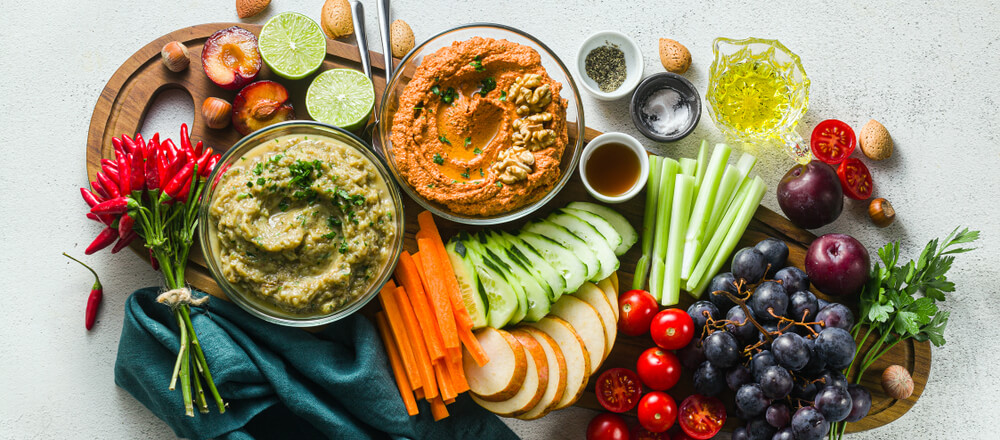
So, let’s look at several strategies that can assist in your weight loss journey.
Vegetables & Complex Carbs are Your Friends
Make sure to fill half of your plate with non-starchy vegetables. For staying full for a long time and reducing calorie intake choose high fibre veggies. For instance, include zucchini, cauliflower, broccoli, and mushrooms in your vegetarian diet as much as possible. In addition, if you are craving carbs, opt for complex ones. Foods such as starchy vegetables, whole grains, legumes, and fruits boost fullness and increase your fibre intake.
Protein & Healthy Fats are Building Blocks for Your Body
Try to incorporate protein as much as possible in every meal and snack. Lentils, eggs, soy food, dairy products, beans and nuts are all great sources of protein. Eat small portions of high-calorie food. Increase your intake of healthy fat and incorporate lower-calorie food so that you don’t overeat.
Additionally, try to eat whole foods such as fruits and vegetables instead of processed foods. Because whole foods do not have unnecessary ingredients in them.
A balanced vegetarian diet containing whole plant foods and limited refined carbs will surely help you lose weight. Regardless, you should also give importance to other important contributors aiding in weight loss. Such as proper sleep, hydration and exercise.
Meat Substitute You can Eat on a Vegetarian Diet
Eating less meat is good for our health and for the environment. Picking a meat substitute is not so difficult as there are plenty of options to choose from. Let’s look at some of the substitute choices that are equally delicious and nutritious.
Tofu
Tofu has been a staple source of protein in Asian cuisine for centuries. And it is gradually becoming a cult favourite for people on vegetarian diets. Tofu is made from soy milk and lacks any flavour of its own. The lack of flavour makes it easier to incorporate tofu as a meat substitute as it takes up the flavour of other used ingredients.
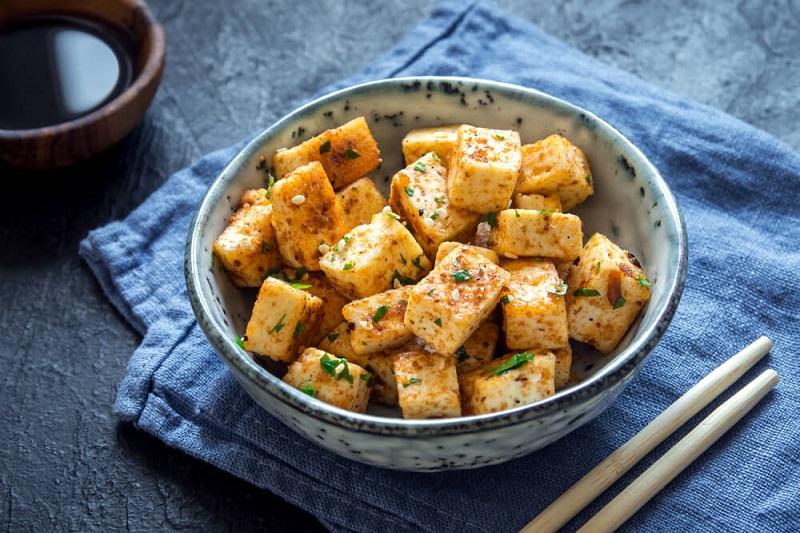
Tofus are fortified with different nutrients such as protein, calcium, iron, vitamin B12 and good fats. You can stir-fry tofu or crumble it to give it the appearance of scrambled eggs or cheese.
Mushroom
If you are looking for an unprocessed, whole food option then mushroom can be a great substitute. As a matter of fact, mushrooms naturally have a meaty flavour. Additionally, it is rich in umami flavour which enhances after cooking. You can grill or broil portobello mushrooms and make them a substitute for meat patties in burgers. Also, you can slice it up and use it in stir-fry vegetables or for making tacos.
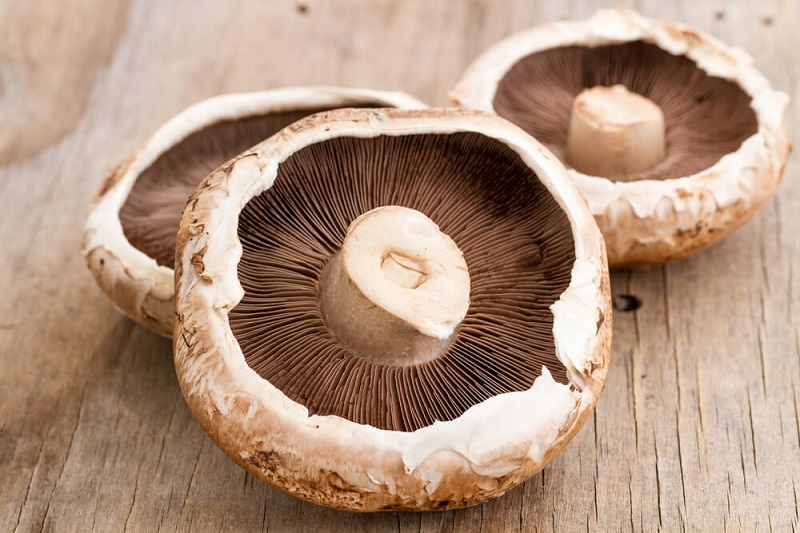
Mushrooms are high in fibres and low in calories. One cup of portobello mushroom contains 42 grams of calories, 3 grams of fibres and 5 grams of proteins.
Tempeh
The traditional tempeh is made from fermented soy. Tempeh has a different nutritional profile, unlike tofu. Because, tempeh is made using whole soybeans which results in rich containment of protein, fibre and vitamins. Half-cup tempeh contains 17 grams of protein and 9 grams of good fat. Also, tempeh is a fermented food, which makes it a great option for digestive health.
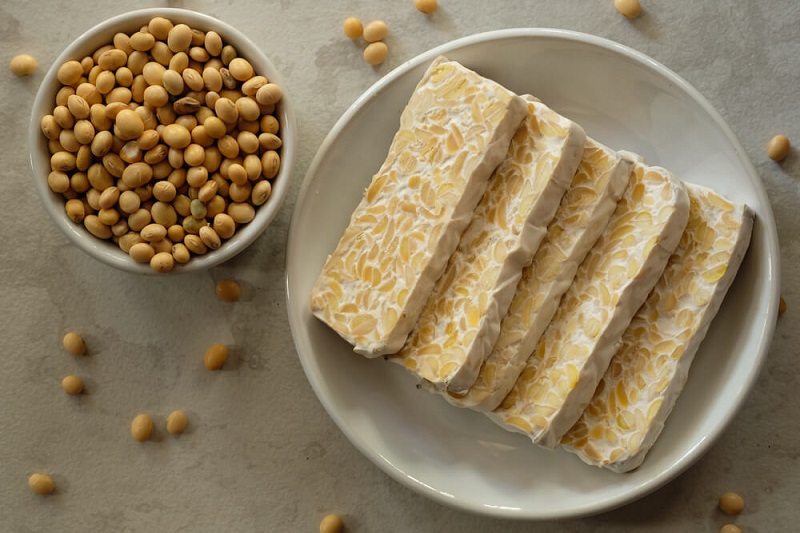
You can easily pair tempeh with peanut-based sauces because of its stronger flavour. It makes a great addition to your stir-fries or Thai salad.
Must-Have Nutrients in a Vegetarian Diet
On a vegetarian diet, you have to be conscious about eating balanced and nutritious food. It is because some nutrients found in animal products are hard to get in a vegetarian diet. On top of that, fruits and vegetables do not always give you an equal source of nutrients. So, you must be careful while planning your vegetarian diet to prevent malnutrition. Here are some of the nutrients you need to ensure you get enough of –
Iron
Iron helps in the production of red blood cells, which carries oxygen throughout your body. Plant source iron is harder to absorb into your body. However, a quick fix can be to increase your intake of vitamin C enriched food such as oranges and broccoli.
Vitamin C increases your body’s ability to absorb iron. Iron-fortified cereals, wheat, beans and tofu are some good sources to get your required amount of iron nutrients every day.
Calcium
Calcium helps prevent bone decay and osteoporosis. Egg and dairy products are the main sources of calcium and these help build stronger bones. However, if you are on a vegan vegetarian diet, you can get your calcium from soybeans, almonds and dark leafy greens. Collard greens, kale and bok choy are some other great plant-based options.
If you go to the gym regularly, take calcium supplements after consulting with your dietician or nutritionist. Also, try drinking fortified soy milk and fresh juice every day.
Vitamin D
For building strong and healthy bones, vitamin D plays a key role. Consequently, vitamin D helps your body to absorb calcium and promotes bone growth. Make sure you get sun exposure for 10 minutes at least 3 – 4 times a week. It is because your body produces vitamin D in contact with sunlight. However, make sure to wear plenty of sunscreens to protect your skin from UVB and UVA rays.
Moreover, drink fortified cow milk, soy milk or rice milk to get an extra dose of vitamin D.
Vitamin B12
Vitamin B12 prevents anaemia by producing red blood cells. If you are a lacto ovo vegetarian you can get vitamin B12 from eggs and dairy products. However, if you are a vegan, you can find products with fortified vitamin B12. Also, ask your doctor to suggest vitamin B12 supplements that will work for you.
Protein
Protein is crucial in maintaining healthy skins, bones, muscles, and organs. Eggs are a great source of protein for ovo vegetarians. In addition, non-animal products such as tofu and soymilk provide protein.
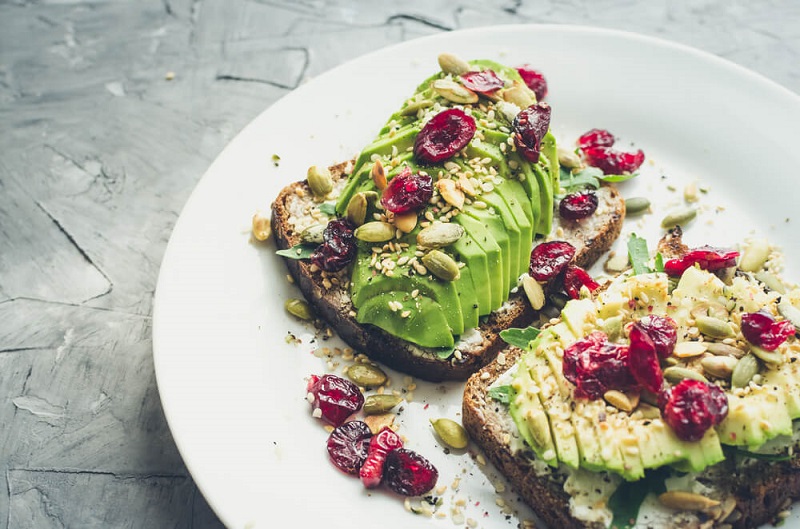
On a vegetarian diet, you have to consider getting enough “complete protein”. Amino acids in protein help your metabolism. And amino acids are found in complete protein sources.
Zinc
For a healthy and strong immune system, eat food that is rich in zinc nutrients. You can find zinc in a variety of nuts, cheeses and soy products.
Omega 3 Fatty Acids
For optimum brain function and heart health, omega 3 fatty acids are crucial. Plant-based products such as flaxseed meals and oil are fortified sources of Omega 3. If you are on a vegan vegetarian diet, you can take supplements after consulting your doctor.
Conclusion
Choosing a vegetarian diet can be both nutritious and delicious. The best part is you can increase your plant protein intake without worrying about your waistline. So, incorporate more plant-based protein into your diet and reduce your intake of meat.
Read more on our blog
- Why You Should Use Photo Background Removers For Mobile Devices
- Maximizing ROI: 11 Strategies For Efficient Advertising Spend
- How to Keep Your Data Safe While Applying for Jobs: 6 Tips
- Take Mac Classes to Transform Your Design Profession
- Exploring the landscape of e-commerce hosting
- TikTok Hashtags: Top Hashtags Which Help You to Get More Followers in 2024
- Personal Branding For Executives: 7 Tips For Maximum Impact
- Transformative Technologies in Senior Living Homes: A Glimpse into 2024
- Continuous Learning: Navigating the Ever-Evolving Landscape of Software Development
- Challenges and Solutions in Implementing Auto Replenishment for Small Businesses
- Available Courses
- Career Bundles72
- Animal care5
- Law8
- Quality Licence Scheme Endorsed111
- Teaching13
- Teaching & Academics Primary27
- Accounting & Finance Primary29
- Training3
- Design9
- IT & Software43
- Healthcare124
- Marketing31
- Health and Safety400
- Construction48
- Electronics25
- Hospitality22
- Health and Social Care219
- Child Psychology37
- Management370
- Business Skills267
- First Aid70
- Employability264
- Safeguarding75
- Food Hygiene103
- Personal Development1272
 Food Hygiene
Food Hygiene Health & Safety
Health & Safety Safeguarding
Safeguarding First Aid
First Aid Business Skills
Business Skills Personal Development
Personal Development







